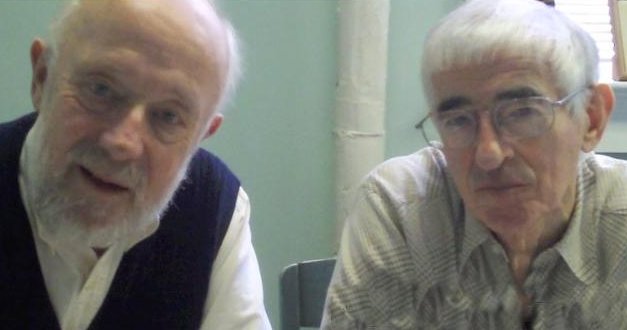Our History
<div style="text-align: left;"><span style="font-family: Georgia; color: #668dc8;"><span style="font-size: 19px;"> <div>Our History<br />1994-2012</div> <p style="text-align: left;"><br />The Center for Progressive Christianity was founded in 1994 by Jim Adams who was, at the time, rector of St. Mark's Church on Capitol Hill in Washington, D.C. At that time there was no known organization, scholar, or church leader publicly using the term, "progressive Christianity." His vision was to create a non-profit organization that encouraged churches to focus their attention on those for whom organized religion had proven to be "ineffectual, irrelevant, or repressive." According to Rev. Adams, the goal "was to keep the churches from drying up and blowing away." This was a response to the recently published statistics showing that membership in mainline churches had dramatically declined in the 1980s, the third decade in a row this had occurred. Based on Adams' experience at St. Mark's Church, he was convinced that if churches would become bolder about professing their progressive tenets, they could thrive. Adams and a small group of peers agreed that they needed to provide some way to help "open and progressive" churches find ways to self identify as "progressive." This was the genesis of TCPC's Eight Points defining progressive Christianity. This early founding group also thought it important to provide opportunities for these churches to network, to share "progressive Christian" articles and book reviews, and to gather occasionally for conferences and workshops. For the first ten years TCPC held annual national forums, and published quarterly news letters. In 1996 TCPC launched its first website giving "affiliate" churches an opportunity to list themselves as "a progressive church" based on their affirmation of the Eight Points.</p> <p style="text-align: left;">By the late 90s, Adams and his then active board and Executive Council realized that they had tapped into a larger hunger and need than anyone had imagined in the early years. The list of churches that wanted to associate grew, the mailing list increased exponentially and the interest in the website attracted people way beyond professional clergy and church leaders. By the year 2002, only eight years after the creation of TCPC, the term "progressive Christianity" had become a common term that was being used by scholars, the media and other Christian organizations, not only in this country, but in the Western world as a whole.</p> <p style="text-align: left;">Over the years TCPC, helped form an international network of autonomous progressive Christianity networks that includes South Australia, New Zealand, Britain, Ireland, and Canada. TCPC represents the United States branch of that network.</p> <p style="text-align: left;">From its inception, the focus of TCPC has been primarily about rethinking and re-conceptualizing the theological and Christological foundations of the Christian faith. The leadership of the organization was and has remained convinced that our supporters and readers are expressing a deep desire to find resources and constructive ways to understand and teach what the newest science, biblical, sociological and historical scholarship has to say about the Christian religion and ways to integrate that information into one's faith and to create healthy, dynamic Christian communities.</p> <p style="text-align: left;">In January of 2005 Jim Adams retired as President of TCPC, after nearly twelve years of devoted, volunteer leadership and remains an Honorary Advisor. The role of Presidency was assumed by Fred C. Plumer, a retired UCC minister and an active member of the Executive Council since 1996. Prior to Plumer's acceptance of this position, he had posited that "the 80s and 90s were about the deconstruction of the Christian myth and the challenge of the new millennium would be to reconstruct a viable, holistic, challenging and spiritual Christian paradigm."</p> <p style="text-align: left;">The first task was to finish the construction of a new, more interactive website and then to find ways to bring together some of the best scholars and committed leaders to help lead this work. In part, because of printing costs and mailing cost and ecological considerations, TCPC has now eliminated the quarterly newsletter and has instituted a monthly on-line newsletter that has been enthusiastically received. The website has been dramatically expanded and is continually being improved. It is considered one of the best sites for articles, resources and events pertaining to progressive Christianity in the country.</p> <p style="text-align: left;">In 2008 TCPC created a strategic plan to find ways to better meet growing demands in our changing world. With extensive research, we came to the conclusion that the most needed resource we could provide is a truly progressive Christian children's curriculum. After three years of hard work, we presented: A Joyful Path, Spiritual Curriculum for Young Hearts and Minds, Year One. This curriculum is part of our larger children's curriculum project- The Inner Wisdom Series. We are currently in the process of creating Year Two of A Joyful Path and are very excited to offer this resource in 2013.</p> <div class="normal">In 2010, we had the amazing opportunity to become the publishers and managers of the Bishop John Shelby Spong e-Newsletter, A New Christianity for a New World. It took a lot of work and patience, but we were able to create a brand new website for this resource, www.johnshelbyspong.com, and we are extremely proud of the direction it is going. It is a mutually beneficial relationship and we feel very blessed to have been given this opportunity to work so closely with one of the greatest leaders of the progressive Christian movement. </div> <p>In 2010 we also changed our name to ProgressiveChristianity.org to better reflect our web based presence and global network.</p> <p>Currently, we are also dedicated to our Liturgy Project, in which we are gathering, creating and sharing all the best liturgy that we can find out there to support local groups, congregations and intentional communities. This amazing, in depth resource will be offered for free on our new website, which is coming out in February 2012.</p> <p style="text-align: left;">We continue to grow as an organization and expand our offerings. We now have 4 part time employees and we opened up a new office in Portland, OR. With our new website, we hope to be the global portal for progressive Christianity, providing resources and support for encouraging the education, growth, and creation of progressive Christian communities all over the world. </p> <p style="text-align: left;">We invite you to join with us in this exciting moment in history- a window where we have the opportunity to be a part of the age of awakening.</p> <br /></span></span></div>


